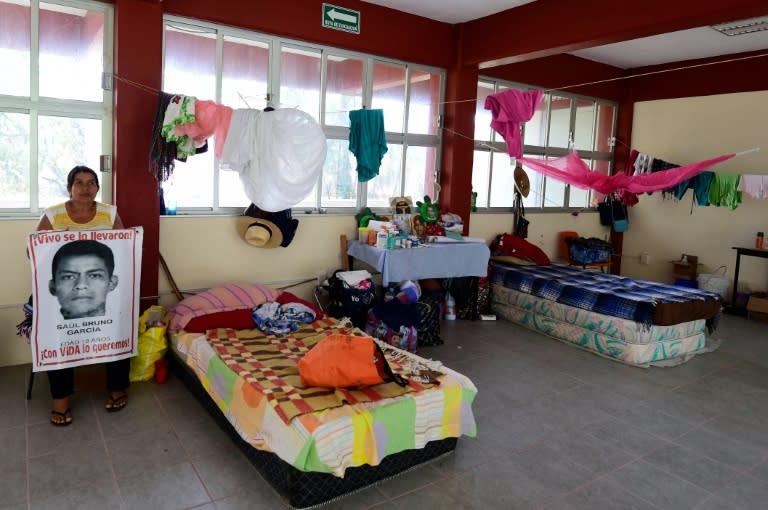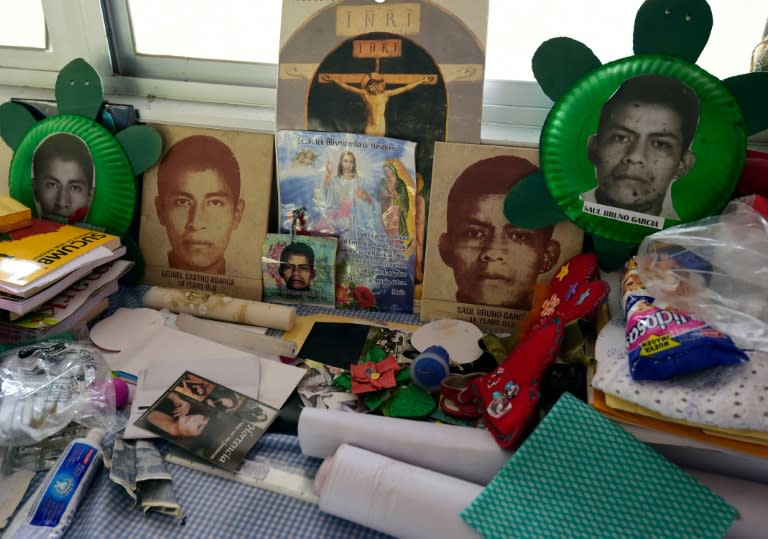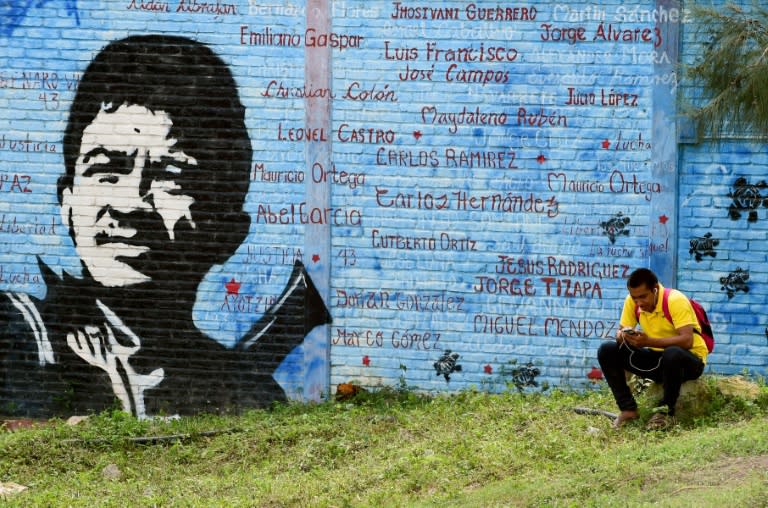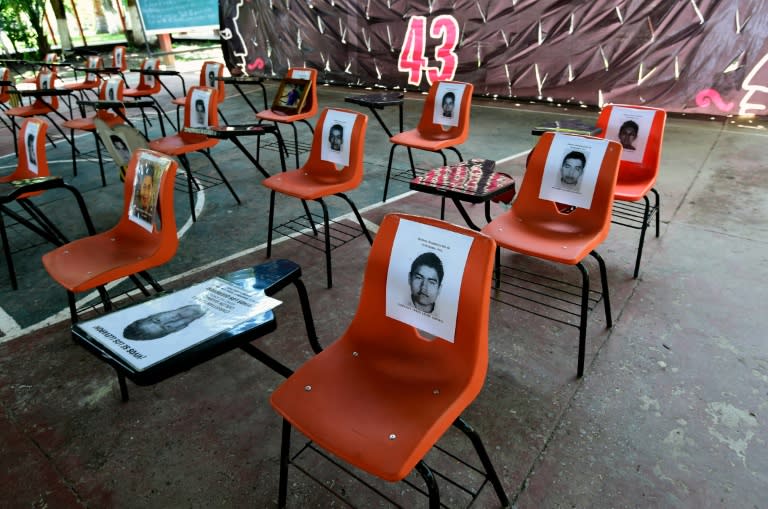Parents of Mexico's missing students live in classrooms
They turned classrooms at their children's college into dormitories, sleeping on the floor, but parents of 43 Mexican students missing since 2014 won't rest until they find them. The mothers live in one classroom that still has a whiteboard, while fathers bunk in another. Mosquito nets hang over their mattresses, but that didn't stop one mother from being infect with Zika. Two tables serve as makeshift altars with photos of their boys next to religious icons. They pray to see their sons alive again, two years after they disappeared in a case that remains unsolved, causing widespread anger at the failure of President Enrique Pena Nieto's government to find the students. Around 20 parents have made the teacher training college in Ayotzinapa, southern Guerrero state, their home since September 27, 2014, the day after their sons vanished from the city of Iguala. The night before, dozens of young men from the school had gone to Iguala to seize buses for a protest in Mexico City, but they were attacked by local police. Prosecutors say the officers handed 43 of the students to a drug cartel, but what happened next has been the subject of heated debate. The attorney general's office initially said the cartel killed the students after confusing them with a rival gang, incinerated their bodies at a garbage dump and tossed the remains in a river. Only one student has been identified through a bone fragment found at the river. But independent experts from the Inter-American Commission on Human Rights rejected that conclusion, saying there was no scientific proof of such a massive fire at the landfill. The parents always doubted the government's conclusions and the report helps them cling to hope that their sons can still be found. The attorney general's office says it will soon use laser scanning technology to look for clandestine graves in other locations and investigate if police from other towns were involved in the mass disappearance. - 'Don't give up' - The parents moved to the college because they live in remote parts of the impoverished state, and traveling is expensive for them. They wanted to be closer to the protests, and fight to find their children. Maria Elena Guerrero's voice shakes when she says she believes her son, Giovanni Galindo, who would be 21 years old today, is still alive. A cardboard hangs on the wall with verses written by Uruguayan poet Mario Benedetti: "Don't give up. Please, don't give up, even if the cold burns, even if fear bites, even if the sun sets and the wind goes silent." Before the tragedy of September 26, 2014, Maria Elena Guerrero was a stay-at-home mom, caring for her two children and her husband, Alfredo Galindo, a primary school teacher who studied at Ayotzinapa. She returns to her real home once a month to see her 18-year-old daughter, Sandra, "because she feels lonely," said Guerrero, 45. But it's her own daughter who sends her back to the college , saying "you have to fight for my brother." Since they left their jobs, the parents receive donations in a shared bank account. A paper hanging on a door says they must attend protests to earn the aid. Nicanora Garcia Gonzalez has been working since age five. She's a baker who made bread in a wood oven back at her home on the Pacific coast of Guerrero. But her job now is to find her son, Saul Bruno Garcia. A picture of him rests on the table next to her mattress alongside medicine. She also has a photo of her daughter-in-law's brother, who is also missing. "They were friends from kindergarten to primary and secondary school. They came here together and they were taken away together," Garcia Gonzalez said. The 57-year-old woman passes the time crocheting towels, which she sells. "We stand together because we have no other choice. We're here, in the same place, suffering the same pain. Their pain is my pain and we feel like a family here," she said. - Proof of life? - In another classroom, the fathers cook beans and corn in an aluminum can on a small electric stove resting on a slab of concrete. "It's the food of the poor," said Margarito Ramirez, a farmer who has dedicated his life to his four children. He lived alone in the United States for eight years to work and send them money. Now he has been living in Ayotzinapa for two years to find one of them, Carlos Ivan Ramirez Villarreal. Ramirez, 59, collects aluminium cans that he sells. With 70, he can make $1. He shares the space with another father who sleeps on cardboard because "he couldn't get a mattress." Ramirez has few belongings. One of the most precious is a copy of the report by the experts from the Inter-American Commission on Human Rights, whose investigation found that his son's phone was activated twice the day after the mass disappearance. It's enough to give him hope that his son is still alive.






